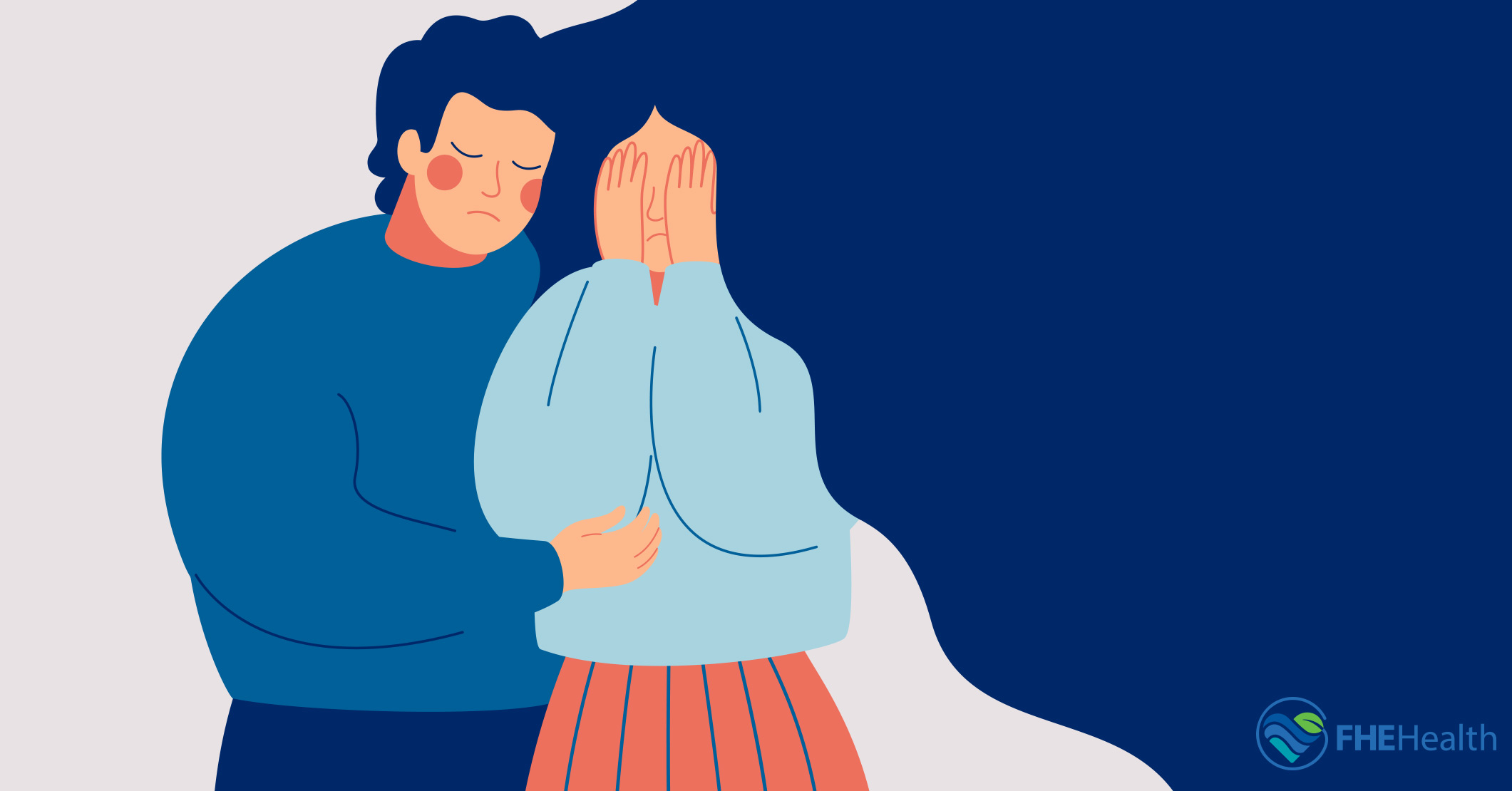
The March of Dimes states that miscarriages are common occurrences, with some research indicating that over 30% of pregnancies end in miscarriage. About 80% of these miscarriages occur in the first trimester. While the loss of a baby can impact both parents, women often feel the pain and grief more severely, coupled with self-blame and guilt. Coping with infant loss or the emotional complexities of Rainbow Babies often requires prolonged grief support. Recognizing the unique challenges and grief associated with the loss of a baby is a vital step in the process.
Emotional Support and Validation
About 10% of people develop enduring grief after the loss of any loved one, but up to 94% of parents experience grief following the loss of a child for the rest of their lives. Many grieving parents don’t get the validation or emotional support they need when mourning baby loss, potentially contributing to the enormous percentage of enduring grief.
Many people simply don’t know what to say to a grieving parent, especially those who haven’t lost a baby of their own. While parents grieving over infant loss may secretly wish for Rainbow Babies, they don’t want to hear “You can always have another baby” if they don’t already have kids or “At least you have other children” if they do.
Instead, validate their loss to ensure they feel supported in their grief. Offering a compassionate ear without rushing to provide solutions is a highly supportive action. Grieving parents may experience a broad range of emotions, from anger and sadness to guilt and disbelief. Friends and family members can validate all these feelings simply by letting them know they’re not alone.
Resources and Baby Loss Grief Support Groups
Mourning a lost baby is a heartbreaking and deeply personal experience. There’s no right or wrong way to grieve and no set timeline for overcoming your grief and moving forward. If you’re a parent who lost an infant during pregnancy or shortly after birth, accessing resources and support groups for coping with baby loss is crucial for healing.
Baby loss grief support groups, both in person and online, offer compassionate communities where you can share your story with other grieving parents. These groups allow you to express your feelings within a nonjudgmental setting where other group members completely understand your loss. Support groups also provide an ideal space to find solace in knowing you’re not alone in your pain.
Another avenue of support is counselors and other mental health professionals specializing in baby loss grief support. These professionals provide one-on-one guidance tailored to your individual needs. They can offer strategies to cope with intense emotions, manage your grief and work toward healing.
If you’re seeking resources to help other than individual counseling or group support, numerous organizations and websites offer articles, books and toolkits specially designed for parents grieving over infant loss. You can find valuable materials covering coping mechanisms and ways to honor the memory of your baby, including rituals for remembrance.
Addressing Stigma Surrounding Infant Loss
Despite the prevalence of infant loss, many cultures and communities struggle to openly acknowledge and talk about it and the unique grief it promotes. This silence can make your grief even worse, making you feel your loss isn’t significant or you must navigate your grief alone.
Our society still views pregnancy loss as a taboo or stigmatized experience in which we view women who’ve lost a child as having done something wrong. This stigma often leads women to not tell friends or family of a pregnancy until after they’re out of the first trimester, when most miscarriages occur.
Breaking down these barriers starts with open, honest conversations about infant loss. To feel genuinely supported, you need acknowledgment of your baby’s existence and their importance, no matter how short their life might have been. When friends and family recognize your mourning of a lost child as a natural yet devastating part of life and not a weakness that should be kept hidden, you can receive the help and support you need.
Your doctor should also play a role in your recovery by providing immediate support following your loss. They should guide you to resources and support groups to help you navigate your grief. Educational resources should also be available to your friends and family to equip them with the knowledge and sensitivity to provide you with adequate support.
Hope and Rainbow Babies
Rainbow Babies, or miracle babies, are healthy babies born following the loss of a baby through miscarriage, stillbirth (pregnancy loss after 20 weeks) or infant death. After the traumatic impact of losing an infant, the birth of a Rainbow Baby can bring much excitement. Rainbow Babies can help parents heal after mourning baby loss, but they can also foster renewed grief and guilt over the lost infant. It’s okay to celebrate your joyful new arrival while also grieving and honoring the child you lost.
Find Compassionate Support
The importance of compassionate support and understanding can’t be overstated. Friends and family who can offer you the understanding you desperately need provide a supportive environment that’s invaluable. This support may simply be a shoulder to cry on and an ear to listen or more practical help such as running errands and helping with daily tasks. If you don’t have a solid support network, consider professional counselors and support groups to get the help you need.
While the pain of losing a baby may never fully dissipate, with the help of our compassionate counselors at FHE Health, you can begin healing. Reaching out for help isn’t a sign of weakness; it’s a courageous step toward reclaiming your life and embracing hope again. Contact FHE Health to speak to one of our counselors at any time, night or day, and let us help you with your grief over infant loss.






